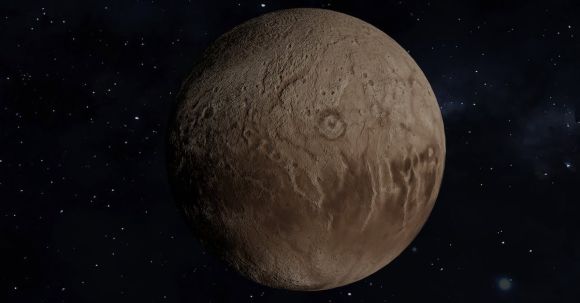In 2006, the International Astronomical Union (IAU) made a historic decision that sent shockwaves throughout the scientific community and captured the attention of the general public. They declared that Pluto, the ninth planet in our solar system for over seven decades, was no longer a planet. This decision sparked debates, protests, and even led to the creation of a “Save Pluto” campaign. So, why did the IAU demote Pluto from its planetary status? Let’s explore the reasons behind this controversial decision.
Discovery of Other Celestial Bodies
One of the primary reasons for reclassifying Pluto is the discovery of other celestial bodies similar to Pluto in our solar system. In the early 2000s, astronomers began discovering objects in the Kuiper Belt, a region beyond Neptune that is filled with small icy bodies. These objects, such as Eris, were comparable in size to Pluto and raised questions about its classification as a planet.
The IAU’s Definition of a Planet
To address the growing confusion, the IAU developed a new definition for what constitutes a planet. According to their definition, a planet must meet three criteria: it must orbit the Sun, it must be spherical in shape due to its own gravity, and it must have cleared its orbit of any other debris. While Pluto met the first two criteria, it failed to satisfy the third requirement.
Pluto’s Orbit and Neighborhood
Pluto’s orbit is highly inclined and eccentric, meaning it deviates significantly from the flat, circular orbits of the eight recognized planets. Additionally, Pluto shares its orbit with other objects in the Kuiper Belt, making it difficult to argue that it has cleared its orbit. This lack of orbital dominance led the IAU to reclassify Pluto as a “dwarf planet.”
Diversity in the Solar System
Another argument against Pluto’s planetary status is the need to recognize the diversity within our solar system. By strictly defining what a planet is, the IAU allowed for a clearer understanding of the different types of objects that exist. Categorizing Pluto as a dwarf planet acknowledged its unique characteristics and placed it alongside other similar objects in the Kuiper Belt.
Advancements in Technology
Advancements in technology have also played a role in the reclassification of Pluto. As telescopes became more powerful, astronomers were able to gather detailed information about celestial bodies in our solar system. These new observations provided a better understanding of the composition and characteristics of objects like Pluto, leading to a reevaluation of its planetary status.
Educational Accuracy
The decision to reclassify Pluto as a dwarf planet also had educational implications. By maintaining an accurate and consistent definition of a planet, educators can effectively teach students about the solar system. Recognizing Pluto as a dwarf planet allows for a more accurate portrayal of the diversity within our celestial neighborhood.
The Emotional Attachment
Despite the scientific reasons behind the reclassification, many people felt a strong emotional attachment to Pluto as a planet. After all, it was the planet of their childhood, featured in textbooks and posters. The sentimental value attached to Pluto led to widespread disappointment and resistance to accepting its new designation.
In Conclusion
The demotion of Pluto from planetary status was not a decision made lightly. It was based on scientific advancements, a reevaluation of the definition of a planet, and the need to accurately represent the diversity within our solar system. While the decision may have been controversial, it allowed for a clearer understanding of the celestial bodies in our neighborhood and ensured that future generations would receive accurate scientific education. So, while Pluto may no longer be considered a planet, it will always hold a special place in our hearts and the history of space exploration.





